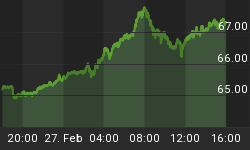This week, as mortgage rates rose to their highest level in more than four years, real estate insiders reassured the public that higher interest rates would not hurt the housing market. Their claims were based on the fact that even though rates had risen, they never-the-less remain low in historic terms. While this may be true, it is completely irrelevant to today's historically unprecedented real estate market.
Although current mortgage rates are still historically low, underlying mortgage balances certainly are not. Several years of artificially low interest rates, combined with lax lending standards and the get-rich-quick mindset, have resulted in homeowners assuming mortgage balances unprecedented in history, both in absolute terms and relative to their incomes. For most, such balances have been sustainable only as direct result of extremely low interest rates, and in many cases temporary teaser rates. Today's stratospheric real estate prices cannot be maintained without these supports. As rock-bottom rates fade away, housing prices must return to earth.
For example, while historically a typical family may have been able to afford a 6.5% mortgage on a normal $250,000 mortgage, the same is certainly not true when applied to today's completely abnormal $500,000 balances. The fact that rates may still be low in historic terms is irrelevant if mortgage balances are now twice their historic norms.
Compounding the problem is the record number of families who now own vacation homes, or "investment" properties that produce negative cash flows. This means that higher interest rates will be particularly burdensome as many households now have multiple mortgages to service.
Even more troubling is the significant number of borrowers who relied on adjustable rate mortgages, or worse, temporarily low teaser rates to qualify for their loans. When those mortgages reset at today's higher levels (or tomorrow's even higher ones) and in some cases are applied to even larger loan balances as a result of negative amortization, the payment shocks will be that much more intense.
Furthermore, the fact that mortgage rates are still historically low merely indicates just how much higher they could potentially rise. In addition, given the low supply of domestic savings, accelerating inflation, and a wave of mortgage defaults likely to further suppress mortgage credit, mortgage rates are likely to rise to historically high levels. Applying high mortgage rates to today's extremely high mortgage balances is like putting a match to gasoline. If sky-high prices were merely the inverse of extremely low interest rates, a sharp rise in the former implies an equally severe collapse in the latter.
In addition, this week's action in the bond, precious metals, energy, and foreign exchange markets, which included simultaneous declines in both bonds and the dollar and break-outs in gold, silver, and crude oil, (all of which I am on the record as having accurately predicted) indicate that a major inflection point could be developing; one which would either send the dollar though the floor, interest rates through the ceiling, or a combination of both. Either scenario is bearish for real estate and bullish for gold, and could turn the American dream into a nightmare a lot sooner than even most housing bears believe possible.
Don't wait for the nightmare to become a reality. Protect your wealth and preserve you purchasing power before it's too late. Discover the best way to buy gold at www.goldyoucanfold.com, download my free research report on the powerful case for investing in foreign equities available at www.researchreportone.com, and subscribe to my free, on-line investment newsletter at http://www.europac.net/newsletter/newsletter.asp.















